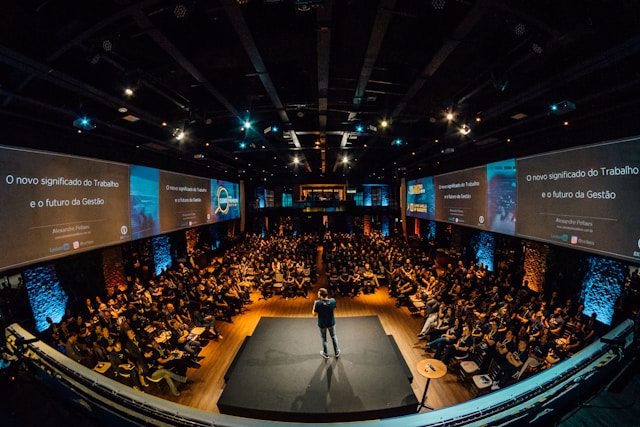The commercial potential of podcasts is obvious. That’s why so many companies – usually ecommerce sites or companies which are otherwise active online – decide to start one. In such cases, the value comes from the fact they already have a captive listenership in the form of the customers who visit their site anyway. They already know what type of people these are and what type of niche they make up and so they can therefore base their podcast content on this.
Plurawl, a company that makes clothing and prints for the Latino community are a good example of this. They also produce a Hispanic podcast for their visitors/customers. Because their customer base is obviously the American Latino community, they are well aware what type of topics to cover on the podcast. In short, they know how to make it as appealing as possible.
However, this is not the route that everyone starting a podcast takes. Sometimes, a podcast is just a podcast and nothing else. In fact,this is the great advantage of the form. Just as ecommerce has democratized business – by making it cheap and easy to start an ecommerce site – podcasts have democratized audio entertainment, something which used to be the preserve of radio presenters.
If such podcasts are going to be successful, they need to offer something unique to a specific listeners base.In other words, they need to have a niche. A lot of consideration and research needs to go into both identifying that niche at the outset and adapting the podcast content in relation to listener response. All of this takes money though, and many starting a podcast might be a little confused on how to actually make money.
Table of Contents
How Podcasts Make Money
Talking about solo podcasts – and not those companies specializing in a different area but also producing a podcast – it is sometimes a little confusing how they actually make money. Podcasts are, after all, free and there are very rarely things like listener subscriptions.
Podcast monetizationthencan occur in various ways. The most common is the monetization option on podcasting hosting sites. For example, if the podcast is hosted on YouTube and accrues enough listeners, the option to monetize the video will become viable. YouTube then pays the podcast creator and YouTube ads appear on the podcast video.
The same broad principle applies in the case of other hosing sites too. Nevertheless, this is not the only way podcasts can make money, and it is certainly not one which is even an option in a podcast’s early days.
Strategies for Making Money from a Podcast
So, how can it be done then? Here follows some of the other routes:
Sponsorship
Whereas YouTube may pay podcasters a fee for their ads to go into the podcast, sponsorships are deals done between the podcaster and specific company. Then, their marketing appears in the video.
Direct Support
“If you like what I do, please consider donating to my Patreon”. That is a phrase you have probably heard often enough on vlogs and podcasts. One way a podcast can make money is simply to ask listeners for it. Of course, this only works if you have enough of them.
Premium Content
Some content is for everybody; for the super fans, there is often “premium content” or “extra content”. This can be paid for and is a terrific way to turn committed listeners into a revenue stream while offering them something valuable for it too.
In the end, podcasts are money-makers because millions of people listen to them. That is the underlying cause and principle behind all of these strategies.




